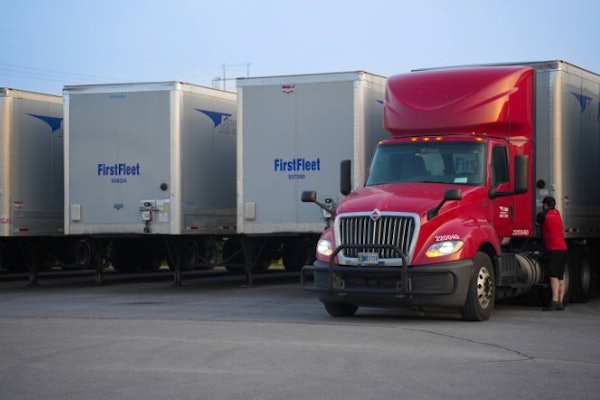A regulatory impact analysis (RIA) commissioned by the Federal Motor Carrier Safety Administration concluded that the agency’s proposed mandate of electronic onboard recorders on carriers that demonstrate serious compliance problems produces a positive net benefit only if the carriers use a low-cost solution, such as a cell phone-based system.
Even then, the annualized net benefit would be a mere $610,000 overall or $41 per power unit involved, according to the RIA conducted for FMCSA by ICF Consulting. However, ICF Consulting’s analysis attributes much of the costs of the proposal to lost productivity due to carriers having to come into full compliance with hours-of-service rules.
The RIA examined three motor carrier populations on which FMCSA would impose mandatory EOBRs: all carriers, all long-haul operations and carriers with recurring noncompliance problems.
ICF Consulting also weighed three different cost assumptions for each option based on the cost of the device. The highest cost estimate was based on figures supplied on a Qualcomm unit. The median cost estimate reflects the median of all vendor pricing gathered. And the low-cost estimate was based on a cell phone product developed by Nextel and software developer Xora.
The bottom line, according to the RIA, is that requiring either all carriers or all long-haul carriers to install EOBRs results in negative net benefits regardless of the device’s costs. ICF Consulting’s estimate ranges from a net cost of $264 million a year for long-haul carriers using a low-cost solution to nearly $3.7 billion if all carriers used a high-cost solution.
FMCSA is proposing to mandate EOBRs only on carriers that demonstrate a pattern of violating the hours-of-service regulations. But according to the RIA, even this limited approach doesn’t produce even a tiny net benefit unless carriers required to install recorders adopt a low-cost solution. More expensive solutions would lead to net costs of up to $7.5 million a year.
The notion of a Global Positioning System-enabled cell phone being used to monitor hours-of-service compliance is not new. Two years ago, Xora and Nextel sought an exemption from current standards for automated onboard recorders so that their product could be used to monitor drivers’ hours. The Xora/Nextel product did not meet the requirement that a device be integrally synchronized with the engine. Under the new standards FMCSA is proposing, however, this synchronization would not be required.
Even under the low-cost estimate, the RIA assumes the annualized costs involved in buying, installing and maintaining EOBRs would be $549 per power unit. But the biggest costs identified by the RIA stem from the operational changes and productivity loss due to achieving full compliance with the hours-of-service regulations. ICF Consulting estimates that these costs total $632 per power unit per year on average.
Excluding those operational costs on the premise that fully complying with the hours-of-service rules should not be deemed an additional cost leads to a significant change in the cost-benefit analysis. Rather than producing $610,000 in net annualized benefits, FMCSA’s proposal would result in $10.2 million in net benefits, the RIA states. Even requiring all long-haul operations to adopt EOBRs would produce net benefits of $213 million a year, assuming they used low-cost devices.
Another factor ICF Consulting excluded in its bottom-line analysis was the operational efficiencies gained by installing systems that could act as EOBRs while also offering benefits such as reduced out-of-route and empty miles or a greater number of power units managed per dispatcher.
Using FMCSA’s proposed approach and low-balling the costs, the RIA identifies $1,285 in costs and $1,326 in paperwork savings and safety benefits per power unit.
The RIA may be downloaded as a PDF by clicking here.







